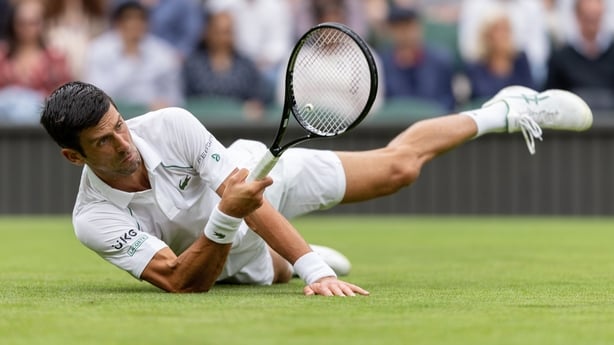All fully-vaccinated Australian citizens and permanent residents will be able to leave the country without a special exemption from 1 November, authorities have said, as Australia eases coronavirus restrictions amid a rise in vaccination rates.
Australians have been unable to travel abroad for more than 18 months without a government waiver, while thousands of fully-vaccinated residents living abroad have been unable to return due to a cap on arrivals to slow the spread of Covid-19.
Many of these are now expected to return after Sydney and Melbourne ended quarantine rules for inoculated travelers from 1 November.
Other cities, mostly virus-free, are expected to ease their border rules once they reach higher vaccination rates.
"The national plan is working ... (it) is about opening Australia up and that is because the vaccination rates are climbing so high," Prime Minister Scott Morrison told Seven News.
Australia's drug regulator, meanwhile, provisionally approved a booster dose of Pfizer Covid-19 vaccine for people aged over 18, as first-dose vaccination levels in people over 16 neared 90%.
Federal Health Minister Greg Hunt said the rollout is expected to begin by 8 November once the government receives advice from the country's vaccination technical advisory group.
The decision to lift the travel ban from next week comes after Singapore yesterday said it would allow quarantine-free entry to travellers vaccinated against Covid-19 from Australia from 8 November.
A third wave of infections fuelled by the Delta variant forced lockdowns in Australia's biggest cities, Sydney and Melbourne, and both have been gradually easing restrictions after racing through their vaccination targets.
Even with the Delta outbreaks, Australia has fared better than many comparable countries, with around 164,000 cases and1,669 deaths.
Victoria state reported 1,534 new cases today, up from 1,510 a day earlier, while those in New South Wales rose to 304 from 282.
No unvaccinated players at Australian Open, says Victoria state Premier
Victoria Premier Daniel Andrews said his government will not apply for travel permits to allow unvaccinated tennis players to compete at the Australian Open in the state after Prime Minister Scott Morrison indicated they would be allowed into the country.
Mr Morrison said earlier that unvaccinated players would be free to compete at the Grand Slam after undergoing a two-week Covid-19 quarantine provided that Victoria, which hosts the tournament in Melbourne, applied for permits for them.
Mr Andrews said his state would make no such applications.
"On behalf of every vaccinated Victorian who has done the right thing, my government will not be applying for an exemption for any unvaccinated player," he told reporters.
"If we don't apply for an exemption, then no exemption will be granted and then the whole issue is basically resolved."
Victoria has been Australia's hardest-hit state, with its capital Melbourne locked down six times. The sixth lockdown ended on Friday, but only for fully vaccinated adults.
Unvaccinated adults remain banned from pubs, restaurants, sporting events and other parts of the economy, and may be shut out until well into 2022.
Victoria's position is a blow for the Grand Slam's organisers Tennis Australia, who want a strong field for the tournament in January.
Some top players, including defending champion Novak Djokovic, have declined to disclose their vaccination status. Serbia's world number one said last week he might not play at the tournament.

Mr Morrison had earlier told the Seven Network that unvaccinated players would need to quarantine for two weeks.
"All the same rules have to apply to everyone," he said.
"Whether you're a Grand Slam winner, a prime minister or a business traveller, a student or whoever. Same rules."
Mr Morrison's comments contradicted those of his immigration minister Alex Hawke, who said last week that tennis players and other athletes would have to be double vaccinated to enter the country.
Professional athletes in Victoria are under a vaccine mandate, which also covers coaches, officials, media and other staff involved in elite competition.
Mr Andrews said tennis players should be held to the same standard as everyone else at the event.
"I'm not going to require people sitting in the grandstand, people working at the event, to be vaccinated while players aren't," he said.
Currently around 70% of the top 100 men and women tennis players are vaccinated.
If Djokovic does play at Melbourne Park he will be favourite to win a record 21st men's Grand Slam singles title - moving him out of a tie with Roger Federer and Rafa Nadal.

